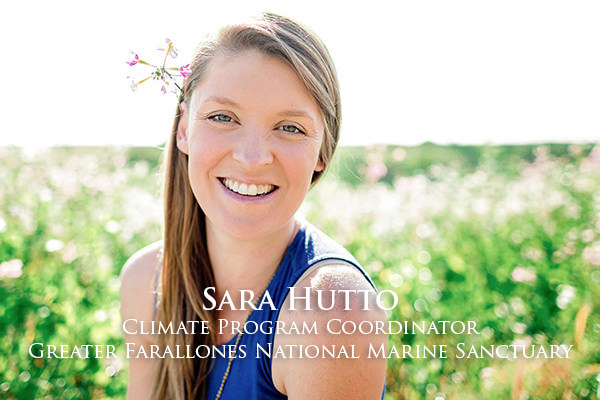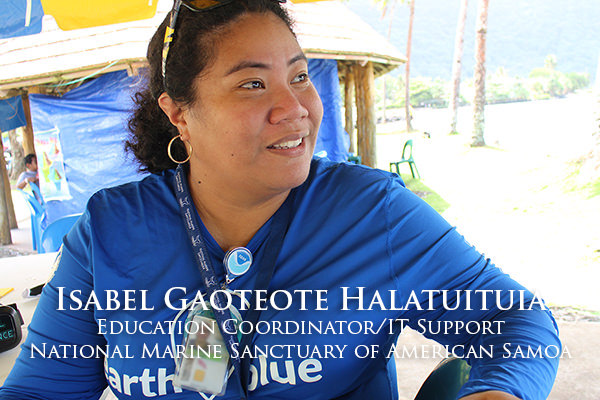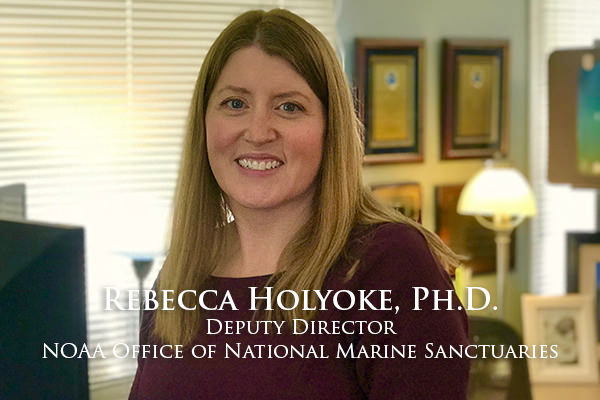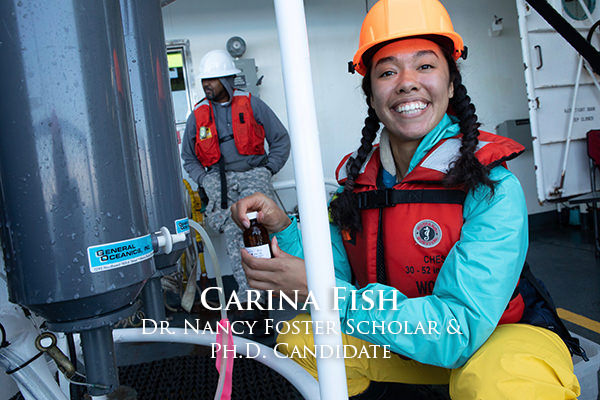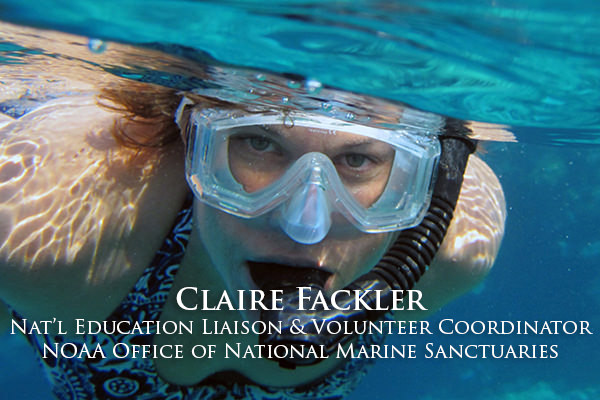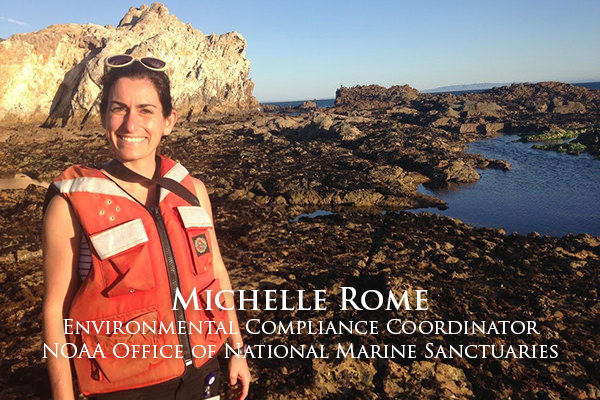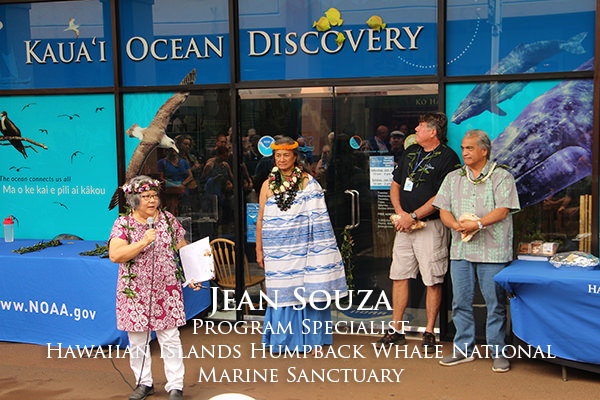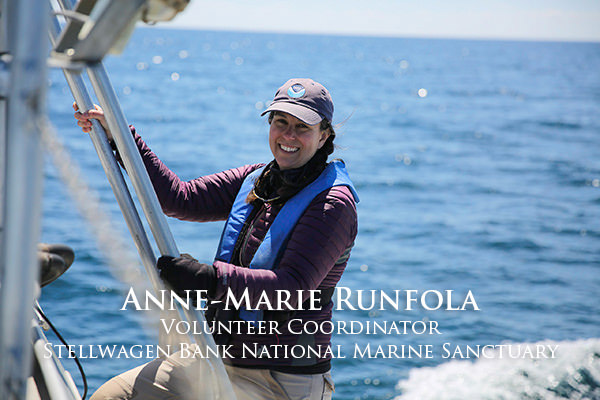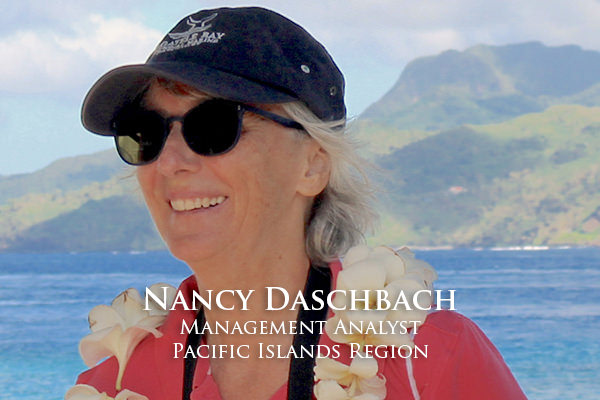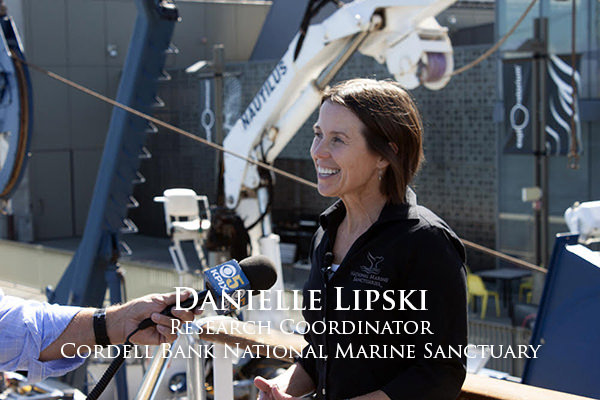Women's History Month
March is Women’s History Month, so this month NOAA’s Office of National Marine Sanctuaries is celebrating and reflecting on women’s achievements throughout the National Marine Sanctuary System. Read on to learn about these women’s contributions to America’s underwater treasures and their vision for ocean conservation.
Sara Hutto
Climate Program Coordinator, Greater Farallones National Marine Sanctuary

What does the National Marine Sanctuary System mean to you?
The National Marine Sanctuary System is small but mighty, filled to the brim with dedicated, professional, and passionate ocean leaders. To me, sanctuaries represent the best of what our country has to offer, and I am inspired daily by my colleagues to further advance the work of coast and ocean protection.
What is one of your proudest contributions to the National Marine Sanctuary System?
I am most proud of the contributions our site, Greater Farallones National Marine Sanctuary, has made in advancing how sanctuaries plan for and respond to climate change impacts. I hope the work we have demonstrated in the field of climate adaptation will continue to guide the sanctuary system in its approach to ocean conservation.
What is your vision for the future of ocean conservation?
The future of ocean conservation will be dynamic, flexible, and in constant change. Traditional conservation practices must give way to bold and novel approaches. National marine sanctuaries must rise to the challenge of climate change and demonstrate leadership in how coast and ocean places should be managed in a climate-informed way.
Isabel (Bel) Gaoteote Halatuituia
Education Coordinator/IT Support, National Marine Sanctuary of American Samoa
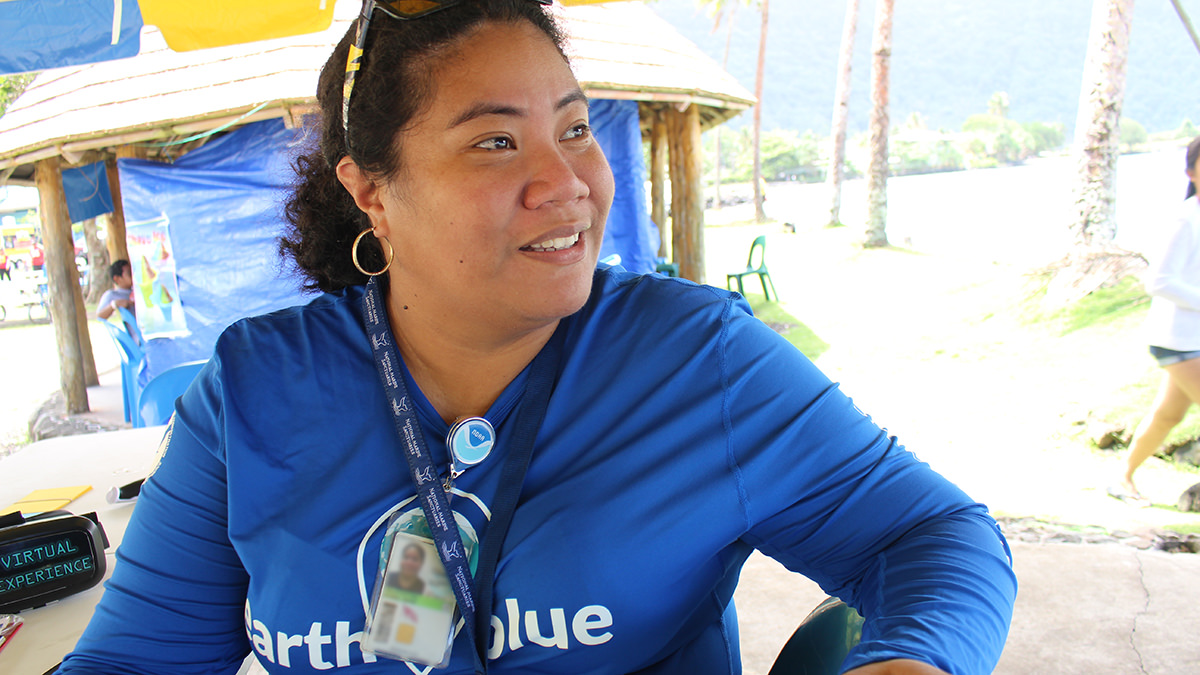
What does the National Marine Sanctuary System mean to you?
A community working together to lead cultural and social change for a healthy ocean and coast that support abundant marine wildlife, sustainable livelihoods, and enjoyment for all.
What is one of your proudest contributions to the National Marine Sanctuary System?
I have worked closely with the local Department of Education and local schools to build and strengthen our relationship with teachers and students. Our future lies in the hands of our children and it’s critical that we reach out to them now and raise awareness to become good stewards of our ocean and environment.
What is your vision for the future of ocean conservation?
I envision a community with a stronger awareness of the importance of ocean conservation. It is my hope that more Samoans will pursue careers in marine science, marine biology, or any other environmental science and inspire younger generations to become ocean champions. This will help guide our community to be ocean-literate, enabling them to make wise decisions about their impacts on the environment.
Rebecca R. Holyoke, Ph.D.
Deputy Director, NOAA Office of National Marine Sanctuaries
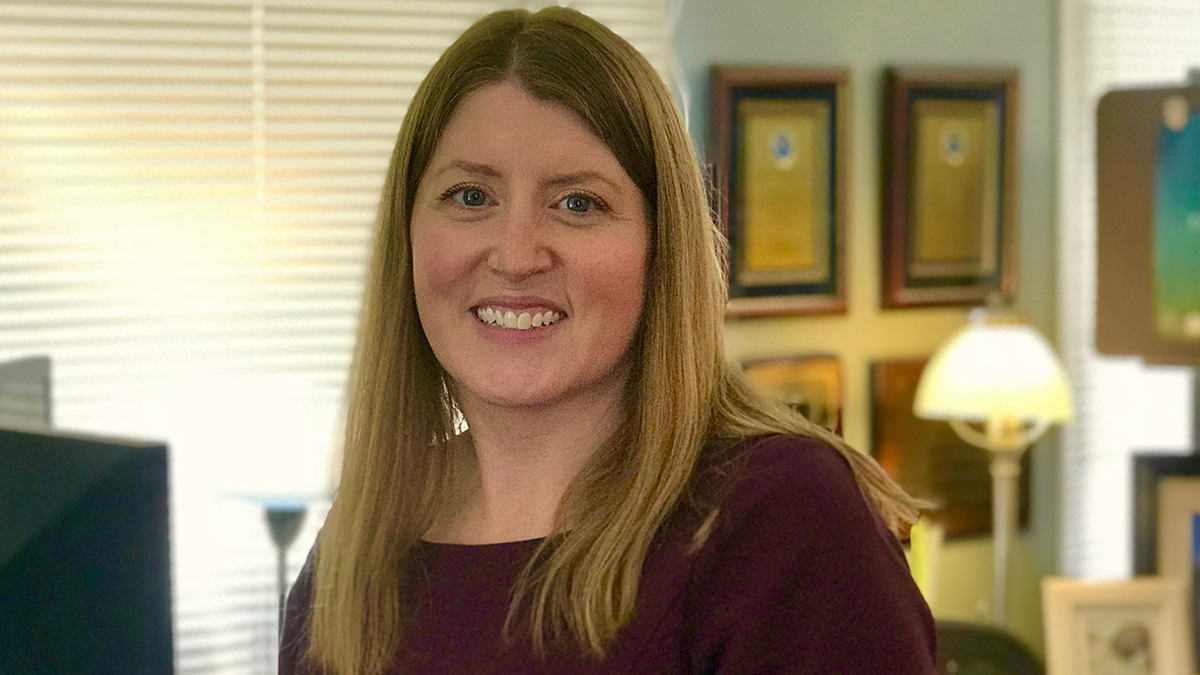
What does the National Marine Sanctuary System mean to you?
Although the phrase National Marine Sanctuary System immediately evokes images of some of the most spectacular natural and cultural resources in our ocean and Great Lakes, to me, it means so much more. It is beyond a network of treasured places and, instead, is a network of individuals, communities, and partners striving to protect biodiversity, cultural, and historical connections, and ecological and economic productivity. Sanctuaries are ours to enjoy and to protect; they are what you make them.
What is one of your proudest contributions to the National Marine Sanctuary System?
It probably sounds funny, but some of my proudest moments are recruiting new employees and watching them grow and blossom in our workforce. The joy and commitment our employees bring to our mission is a driving force in our success.
What is your vision for the future of ocean conservation?
Ensuring a vibrant, ecologically, and economically productive ocean requires all of us. Therefore, my vision for ocean conservation is a well-educated global population equipped to make scientifically-sound management decisions. To do this, we must increase ocean literacy, integrate and develop new technologies and scientific capabilities, and create a culture of collaboration across all sectors that furthers our understanding of and protects our ocean and Great Lakes.
Carina Fish
Dr. Nancy Foster Scholar & Ph.D. Candidate
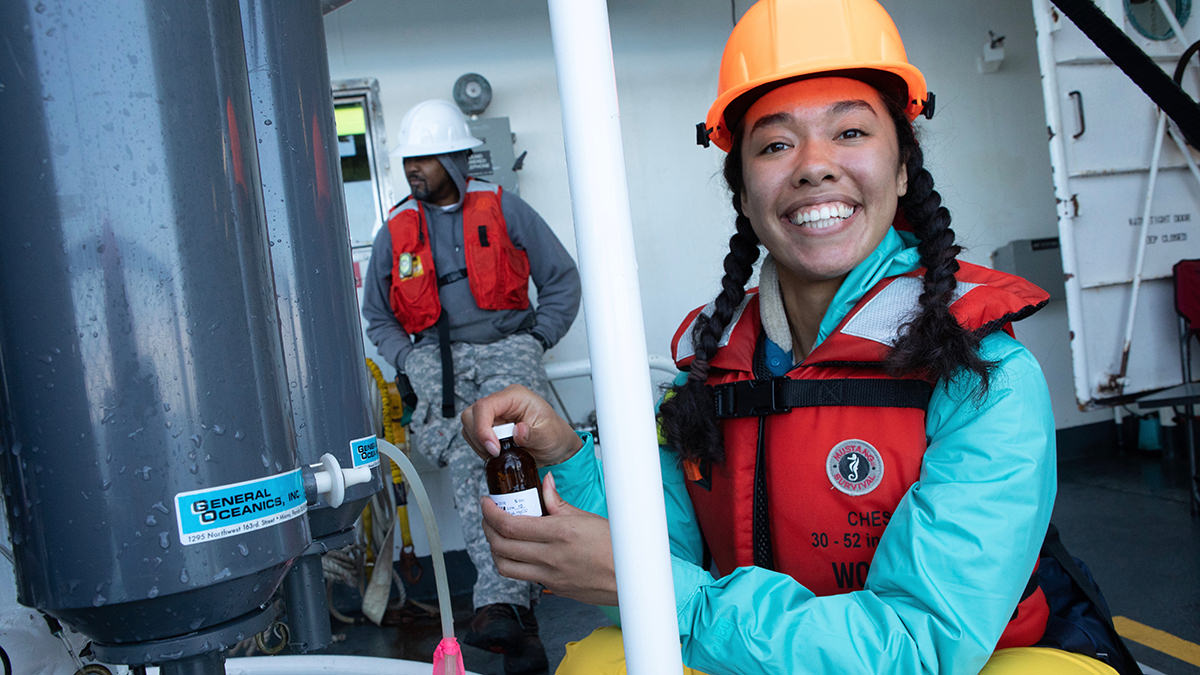
What does the National Marine Sanctuary System mean to you?
The National Marine Sanctuary System is an invaluable asset to this country. The level of stakeholder engagement is truly remarkable and strengthens the federal management of important local waters. The system balances the use (both recreational and commercial) of each sanctuary with management customized to the home region which allows for maximum benefit of these federal waters.
What is one of your proudest contributions to the National Marine Sanctuary System?
I more than doubled a three-year dataset and now can help Cordell Bank and Greater Farallones national marine sanctuaries answer questions about ocean acidification over the past decade in their region.
What is your vision for the future of ocean conservation?
To continue promoting the use of reusable bags and cutlery while simultaneously holding corporations accountable for their pollution.
Claire Fackler
National Education Liaison and National Volunteer Coordinator, NOAA Office of National Marine Sanctuaries
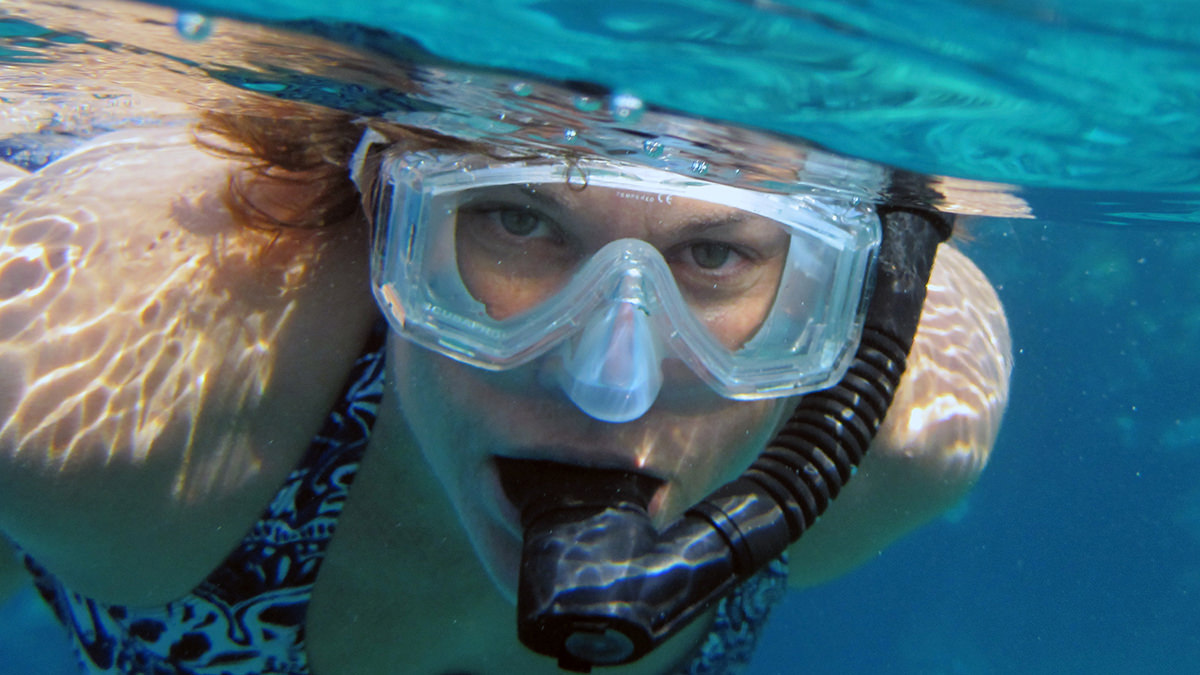
What does the National Marine Sanctuary System mean to you?
National marine sanctuaries are our country's underwater parks that we are protecting now and for future generations. These underwater treasures being managed by extremely passionate people inspires hope for the future, which can galvanize momentum for a healthy global ocean.
What is one of your proudest contributions to the National Marine Sanctuary System?
I had the opportunity to develop an international ocean science and cultural exchange program for teenagers from North America and the Greater Middle East to inspire a more peaceful world following the tragic events of September 11, 2001. This unique program brought together diverse students to foster cross-cultural relationships, explore marine science, and develop a stewardship ethic for the ocean. Our national marine sanctuaries were the living classroom where these high school students spent two weeks discovering how one ocean connects us all and how, by connecting to the ocean, we enrich our lives together. This experience was not only life-changing for the teenagers, it was transformational for me, too.
What is your vision for the future of ocean conservation?
It is important to note that there is only one large, interconnected global ocean and you are connected to it no matter where you live. The overall health of the ocean is vital to our quality of life and, ultimately, our survival. Therefore we must all do our part to ensure we protect and conserve the world's ocean. My hope is that the work many of us do will inspire conservation and stewardship to ensure an ocean-literate public making informed environmental decisions exists well into the future.
Michelle Rome
Environmental Compliance Coordinator, NOAA Office of National Marine Sanctuaries
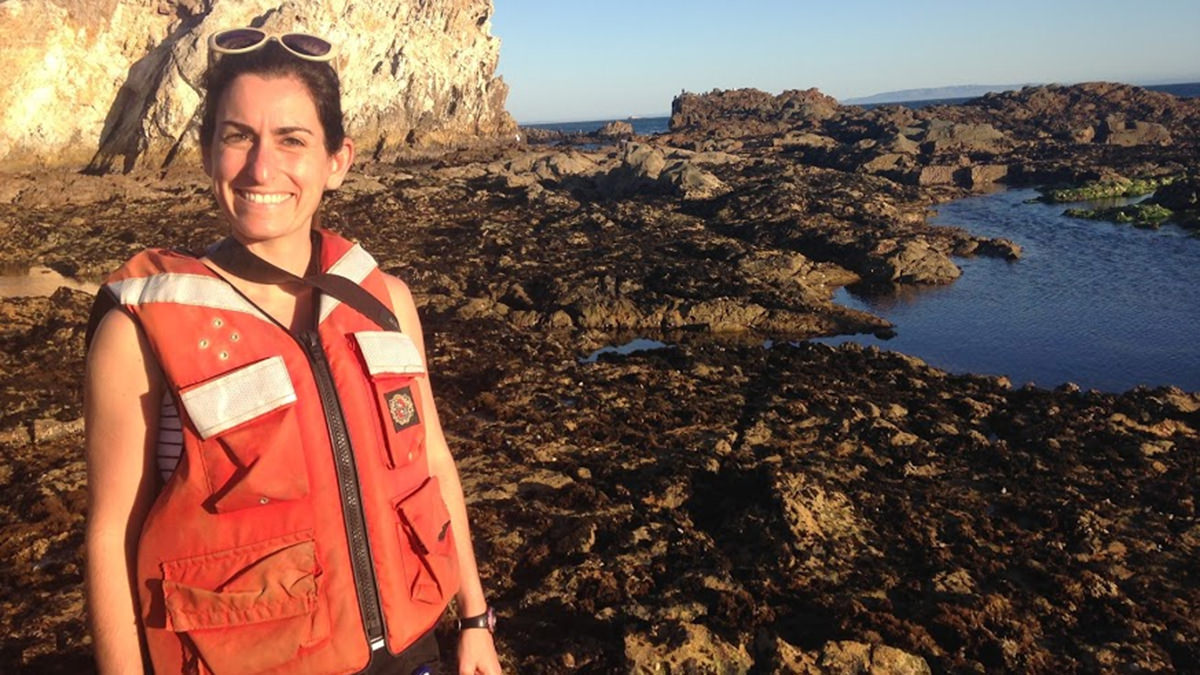
What does the National Marine Sanctuary System mean to you?
The National Marine Sanctuary System is a wonderful place to work and visit. During my first year here, I've been overwhelmed by everyone's passion, interest, and excitement. To me, the sanctuary system promotes sustainable use and conservation and is supported by staff that genuinely believe in that mission.
What is one of your proudest contributions to the National Marine Sanctuary System?
I'm proud that I have been able to develop more efficient processes for completing our environmental compliance documents. This allows us to be compliant with important environmental laws, and doing so in a more efficient manner means that staff can spend more time on other mission-critical goals, such as resource protection, education, outreach, and research.
What is your vision for the future of ocean conservation?
I envision a society that learns at an early age about the importance and meaning of ocean conservation. My hope is that people are able to visit the ocean, lakes, or other important resources in order to help make these connections meaningful and develop a genuine interest in conserving these important resources.
Jean Souza
Program Specialist, Hawaiian Islands Humpback Whale National Marine Sanctuary
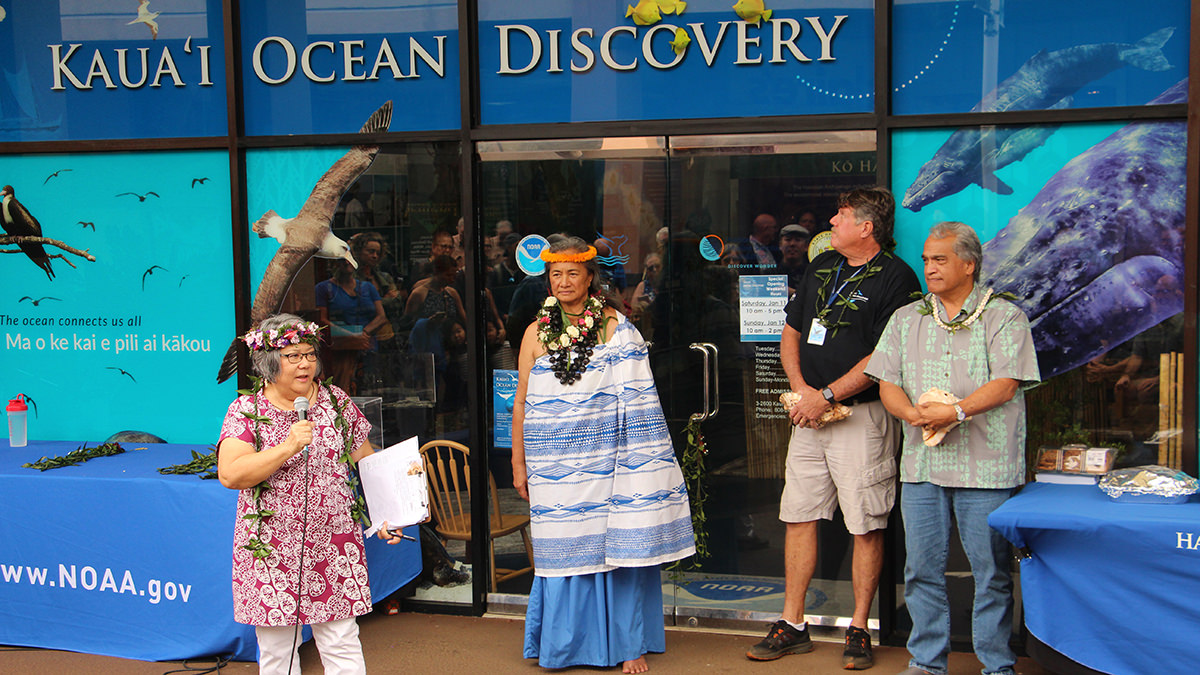
What does the National Marine Sanctuary System mean to you?
The National Marine Sanctuary System means that there are gifted, knowledgeable, and well-networked staff living in and working with local communities across the nation. Together, we are working on realizing our common goals around natural resource conservation and perpetuating cultural practices. It means that through our collective efforts, and by using our imagination, we can build programs, activities, and facilities that are effective, meaningful, and full of magical potential. NOAA provides a direct avenue for more people, no matter how remote they are from the nation’s capital, to be a part of not just a single sanctuary, but a larger system of marine managed areas.
What is one of your proudest contributions to the National Marine Sanctuary System?
After over a decade of dreaming of having an ocean discovery facility on the island of Kaua‘i, of conceptualizing it, holding public visioning sessions, and learning from other facilities over the years, we opened Kauai Ocean Discovery in January 2020. The beauty of this experience has been the collaboration with an array of partners; the sharing of talents and experiences from a number of geographies; respecting the planning process initiated at the community level and the ability to make their vision a reality; the focus on visual quality and content; and most of all, a “we” not “me” approach to getting things done.
What is your vision for the future of ocean conservation?
The future of ocean conservation will continue to be with each individual and groups of community members. Our success—as citizens and as government managers and decision makers—will be realized through strong relationships of trust, a sense of shared responsibility, and the common desire to care for what we treasure.
Anne-Marie Runfola
Volunteer Coordinator, Stellwagen Bank National Marine Sanctuary
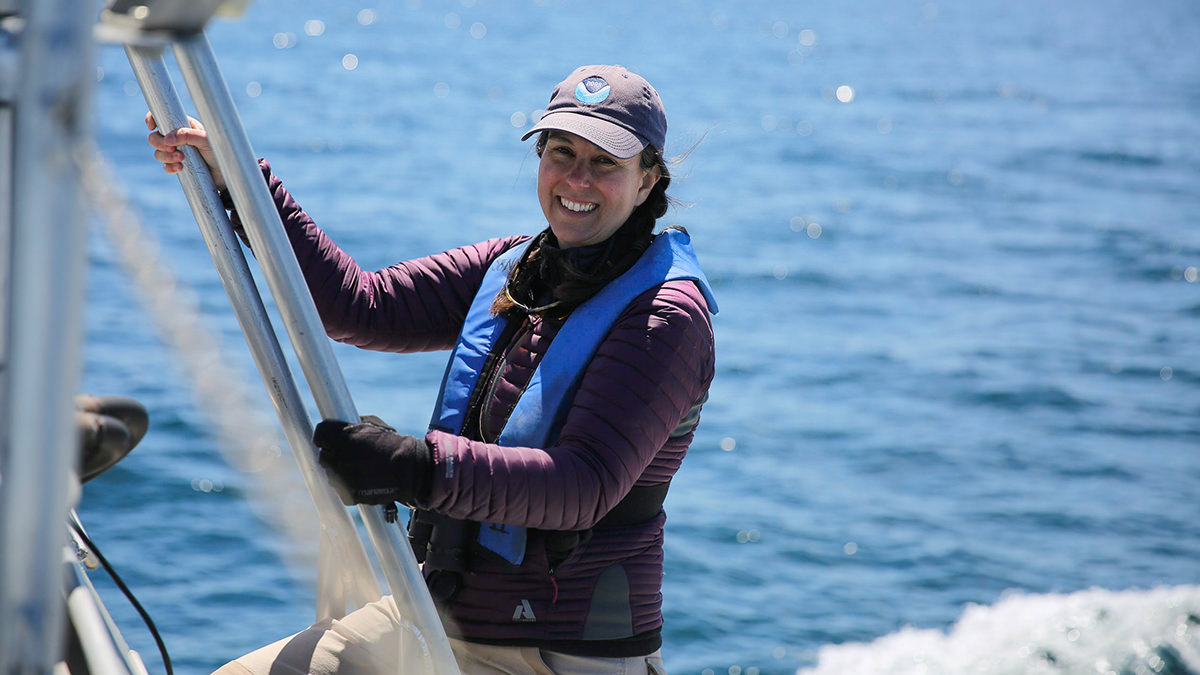
What does the National Marine Sanctuary System mean to you?
The National Marine Sanctuary System provides a vision and a road map to help us protect special places in the ocean for current and future generations to visit, learn, explore, and be inspired. Stellwagen Bank National Marine Sanctuary specifically has given me a physical, intellectual, and emotional connection to the ocean and a place to focus my passion for conservation and community engagement. Thanks to sanctuaries, this girl from landlocked western New York can close her eyes and clearly envision an ocean teeming with life, history, and activity, then open her eyes, roll up her sleeves, and get back to work to keep these special places special.
What is one of your proudest contributions to the National Marine Sanctuary System?
One of the first volunteer programs I created was the Stellwagen Sanctuary Seabird Stewards (S4) research and monitoring program, with a lot of support and encouragement from our sanctuary team and partners. S4 is providing foundational knowledge of seabird populations to help inform policies that protect seabirds and the broader marine ecosystem of the Northwest Atlantic. Additionally, S4 has provided opportunities for hundreds of volunteers, students, and other collaborators to contribute their own passion and energy to sanctuaries that has led to awards, internships, and career advancement for a number of our team members.
What is your vision for the future of ocean conservation?
Everyone has some connection to the ocean—even if they’ve never been to the shore. Every drop of rain or passing cloud is a reminder that the ocean touches all of us every day and that we owe our existence to the ocean. My vision would be for everyone to share that awareness and to celebrate the fact that we live on a truly remarkable planet by doing anything we can to minimize our impact on the ocean that sustains us in countless ways.
Nancy Daschbach
Management Analyst, Pacific Islands Region
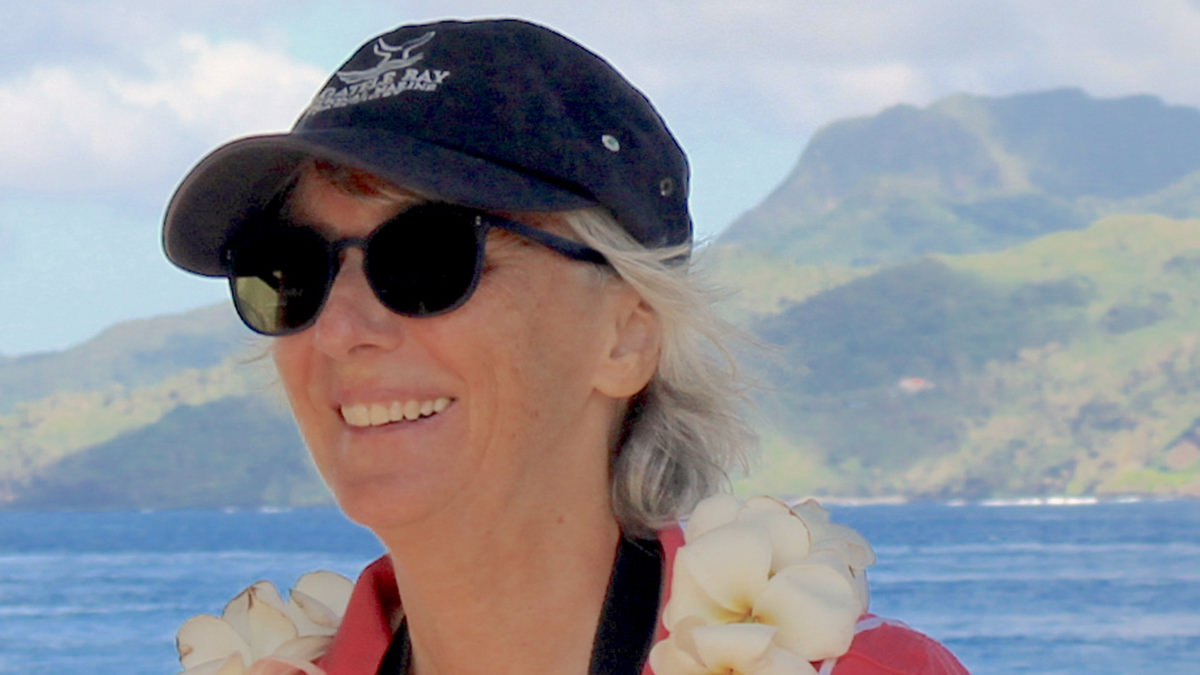
What does the National Marine Sanctuary System mean to you?
Our National Marine Sanctuary System, along with the National Park System, offers our country's best hope for preserving our beautiful, precious—and threatened—natural spaces and their resources. The sanctuary system’s mission and goals provide solutions that can energize communities to protect their waters, and ensure everyone's use and enjoyment of them in perpetuity.
What is one of your proudest contributions to the National Marine Sanctuary System?
As the first superintendent of the then-Fagatele Bay National Marine Sanctuary, I am most proud of the site's program development in American Samoa—my home for 25 years. I count myself so fortunate to have lived and worked in this wonderful and remote island community blessed with the most beautiful and diverse reefs in the U.S. Although I can't take credit for the site's later expansion from the smallest to the largest in the sanctuary system, I am gratified that my contributions may have paved the way.
What is your vision for the future of ocean conservation?
Ocean conservation presents the most critical and formidable environmental challenge facing our planet today. The health and welfare of humanity (to say nothing of the myriad species living in, on, or near the world's seas) hinge on how successful we are in protecting and preserving the ocean, waterways, and water sources. Hope fuels my vision that future generations of conservation warriors—including scientists, politicians, and everyday people—accomplish extraordinary wins for ocean conservation.
Danielle Lipski
Research Coordinator, Cordell Bank National Marine Sanctuary
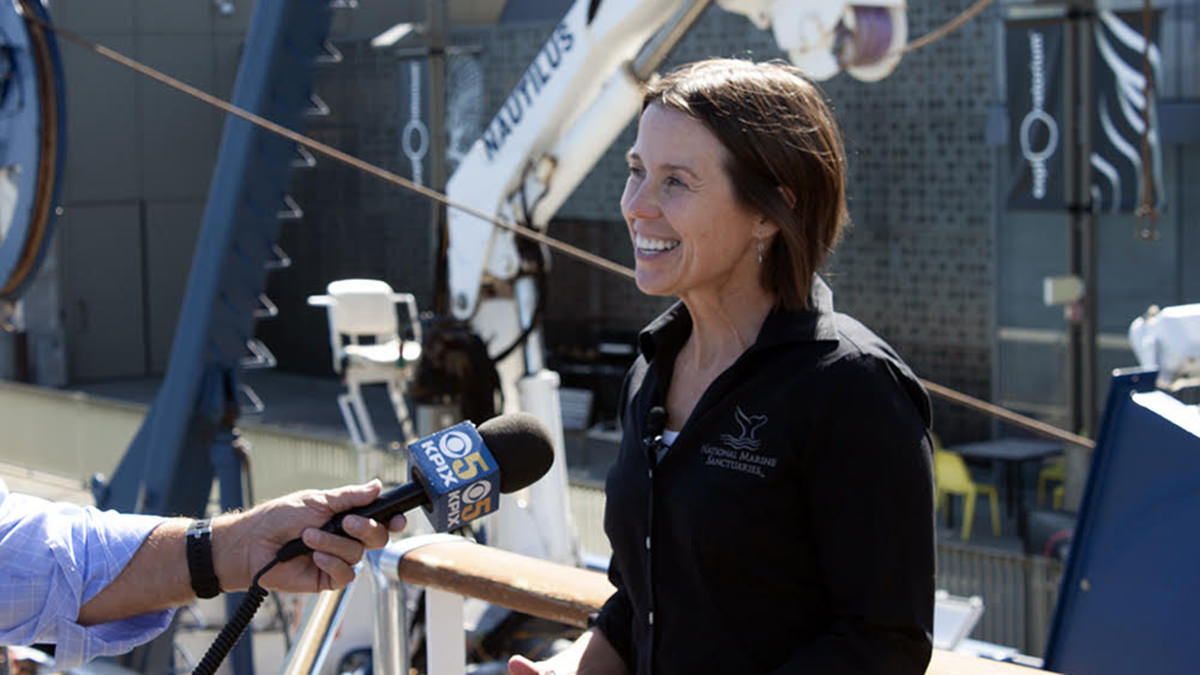
What does the National Marine Sanctuary System mean to you?
The National Marine Sanctuary System to me means that we are investing in protecting areas of the ocean in the public trust for the American people, and that we are responsible for managing the complete ecosystems within sanctuary boundaries, as well as understanding the connectedness of ocean ecosystems.
What is one of your proudest contributions to the National Marine Sanctuary System?
I'm proud of our explorations of the seafloor, which were the first-ever observations of the deepest areas of Cordell Bank National Marine Sanctuary. I'm also proud of our monitoring programs that inform management of these special places.
What is your vision for the future of ocean conservation?
I hope that the science and education from national marine sanctuaries can inform and inspire conservation of the ocean so that it is cared for in accordance with the vital services it provides to the planet.


